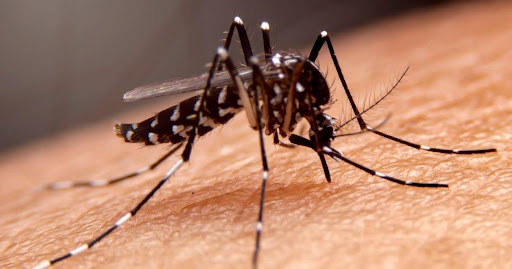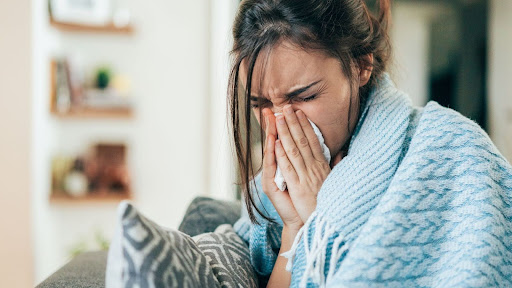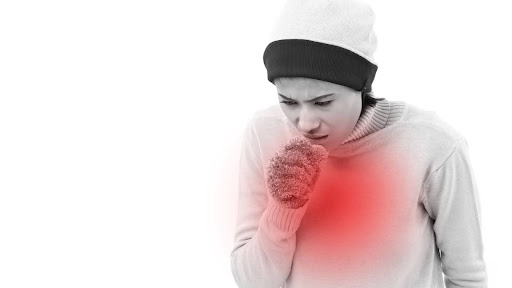Dengue Diet: What to Eat to Increase Platelets
4 min read
By DocGenie , Published on - 20 October 2024Dengue fever is a mosquito-borne viral infection that can provoke a variety of symptoms: high fever, severe headache, muscle and joint pain, and characteristic skin rash. In some cases, it has even caused dengue hemorrhagic fever (DHF) or dengue shock syndrome (DSS), which can be fatal. Though medical care is essential, the incorporation of a healthy diet may significantly speed up the recovery process.
Understanding Dengue Fever

Platelets contribute significantly to the clotting of blood and the prevention of exorbitant bleeding. Dengue fever can lead to a drop in platelet counts, characterised by the medical term thrombocytopenia. This low platelet count could potentially heighten the risks of haemorrhage and bleeding for dengue patients.
Diagnosis of Dengue Fever
A combination of factors is often used to diagnose dengue fever:
- Clinical Symptoms: The doctor evaluates symptoms such as fever, headache, muscle and joint pains, and rash.
- Blood Tests: Blood tests are useful to confirm the diagnosis by identifying dengue virus antibodies or in monitoring platelet count.
Treatment of Dengue Fever

- Rest: Adequate rest allows the body to regain energy levels.
- Hydration: The patient must consume plenty of fluids like water, oral rehydration solution (ORS), and clear broth in order to not be dehydrated. This is the cornerstone of treatment for Dengue fever.
- Pain Relief: Over-the-counter drugs like paracetamol can help reduce the patient’s fever and allow them to experience relief from headache and muscle pain. The patient should avoid aspirin and ibuprofen as these can increase the risk of bleeding.
- Medical Supervision: Hospitalization may be required for the patient if their condition is severe. This could be to monitor their vital signs, give the patient intravenous fluids.
What to Eat in Dengue to Increase Platelets
A well-balanced diet plays an important role in managing dengue fever. Proper nutrition supports the body's immune system, aids in tissue repair.. By consuming nutrient-rich foods like fruits, vegetables, lean proteins, and whole grains, individuals can enhance their body's ability to fight the virus and recover well.
Staying hydrated should also be a top priority to avoid dehydration, one of the common complications of dengue fever. A patient who follows a doctor-recommended diet and remains hydrated can significantly improve their health and well-being while recovering.

- Vitamin C-Rich Foods: Vitamin C, found abundantly in citrus fruits, berries, and bell peppers, strengthens the immune system and aids in platelet production.
- Protein-Rich Foods: Protein plays a vital role in tissue repair and immune function. Incorporating lean meats, fish, eggs, lentils, and tofu into the diet can significantly support the body's recovery process.
Foods to Avoid
A healthy diet is important, but it is also important to avoid certain foods that can delay the patient’s recovery:
- Spicy Foods: It might cause irritation in the digestive system and worsen symptoms.
- Oily Foods: Oily foods are hard to digest and can cause discomfort.
- Alcohol: Alcohol can dehydrate the body and interfere with the body's ability to recover.
- Caffeine: Too much caffeine consumption leads to dehydration and disrupts sleep.
Telemedicine for Dengue Diet Consultation
Telemedicine can be regarded as an easy and convenient method of consulting healthcare professionals when one has dengue fever. A patient can connect with doctors remotely with video conferencing technology and get personalized dietary advice.
A telemedicine consultation for dengue diet can provide the following benefits:
- Convenient Access: Consult with a healthcare professional from the comfort of your home.
- Personalized Advice: Get dietary recommendations tailor-made for your needs and symptoms.
- Regular Monitoring: Stay in touch with your doctor to regularly review and update your diet chart.
- Prompt Response: Get timely advice and address any concerns you may have.
By combining medical treatment with a nutritious diet and seeking timely medical advice through telemedicine, individuals can effectively manage dengue fever and promote a speedy recovery.
DocGenie is here to help. Through telemedicine consultations, you can connect with experienced doctors who can provide personalized dietary recommendations to boost your platelet count and aid in your recovery. By consulting with a doctor on DocGenie, you can ensure you're following the right dietary guidelines, addressing any concerns, and monitoring your progress remotely. Book an appointment here.



